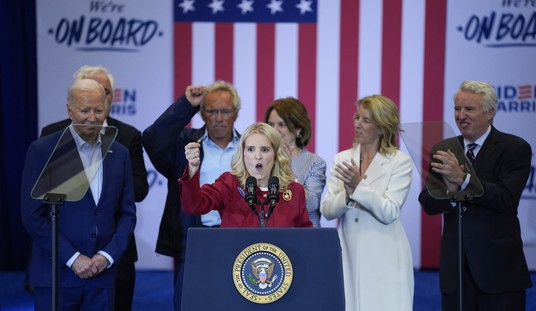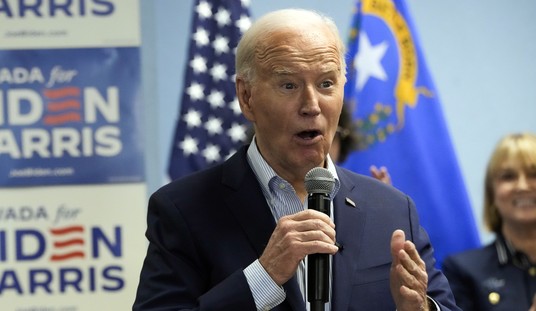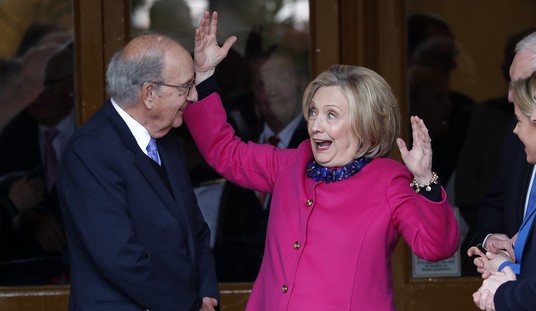
Anyone who thinks there isn’t a huge debate in the GOP over the direction of American foreign policy simply hasn’t been paying attention. In fact they haven’t been paying attention for at least a decade. The invasion of Iraq in 2003 was the high-water mark of the Wilsonian/Internationalist impulse within the GOP. The insurgency in Iraq — abetted by the current president of the United States when he was in the Senate and by many members of his administration — the difficulty in building a civil society in a nation where civil institutions, beyond those controlled by Saddam Hussein, had been ruthlessly eradicated, and a huge dollop of wishful thinking by the Bush administration all combined to poison the well of military intervention within the GOP.
Via POLITICO’s Michael Crowley, who apparently has been in coma since 2004, How Cruz and Rubio exposed the GOP’s rift on foreign policy
Tuesday night’s Republican debate revealed a deep rift in the Republican party over how to deal with Middle East dictators a decade after George W. Bush’s neoconservative call for aggressively promoting American-style democracy in the region.
As the GOP candidates offered similar plans for fighting the Islamic State, a richer argument emerged over America’s foreign policy priorities — one evident in the clash between Marco Rubio and Ted Cruz over the fate of Syrian dictator Bashar Assad and other Middle East strongmen opposed to radical Islamists.
Cruz, playing the role of foreign policy realist, said that President Barack Obama had left America less secure by pushing for the ouster of Arab dictators, including Assad, whom Obama insists must leave power. “If we topple Assad, the result will be ISIS will take over Syria and it will worsen U.S. national security interests,” the Texas senator said.
…
Rubio backed Obama’s 2011 military intervention in Libya, which helped to topple that country’s dictator, Muammar Qaddafi, and applauded when Egyptian President Hosni Mubarak left power under pressure from Obama earlier that year.
The Florida senator’s full-throated support for human rights and democracy echoes, to many Republican ears, Bush’s grandiose, transform-the-Middle-East philosophy. Rubio has consulted with former key Bush advisers, including Elliott Abrams, a former Bush White House aide who specialized in democracy promotion, and the senator’s longtime top foreign policy aide, Jamie Fly, has close ties in neoconservative circles (does using this word mean that Crowley is an anti-Semite?).
Without delving into the weeds of this, suffice it to say that a moral and intellectually consistent case can be made for either option and that neither option is at odds with the history of the Republican party. But, as we’re beginning to see with monotonous regularity, the Rubio campaign — in a sadly Obama-esque style — is simply unable to accept opposing positions as legitimate and engage in debate. Rather they feel compelled to try to make the opinions and anyone expressing them illegitimate.
For instance, the NSA metadata collection program that [mc_name name=’Sen. Ted Cruz (R-TX)’ chamber=’senate’ mcid=’C001098′ ] voted to end did absolutely nothing to further the security of the United States and held a great deal of potential for being used for civil rights abuses. We already know that numbers of NSA employees used NSA assets to spy on their spouses and lovers. The real purpose of a program that only has 30% coverage of telephone calls and doesn’t cover Skype is simply to allow bureaucrats to say “we did all we could” as an excuse the next time we are hit with a major terrorist attack. The Rubio campaign has started calling Cruz “weak on national security” because he was against a useless program. Cruz’s position is supported by about two-thirds of Americans across the political spectrum.
Shortly after the Tuesday debate, the Rubio campaign attacked Cruz as “isolationist.”
Though the Rubio vs. Cruz clash has been building for some time, it boiled over Tuesday night as Cruz explained why sometimes allowing dictators to stay in power was more aligned with America’s national security interest than promoting democracy. Over the course of explaining why democracy promotion wasn’t the answer in Libya, Egypt, and Syria, he said, “I believe in a America-first foreign policy.” The phrase “America first,” is historically associated with Charles Lindbergh, the isolationist who led a movement advocating U.S. neutrality in World War II, an association that was exploited by his critics who have been desperately trying to distort Cruz’s foreign policy views.
In a fundraising email following the debate, Rubio campaign manager Terry Sullivan blasted, “the isolationist tag team duo Ted Cruz and Rand Paul.”
The Washington Post’s Jennifer Rubin launched a similar line of attack, comparing Cruz to Lindbergh, saying that he “outdid himself last night in his courting of the Trumpkin base. In doing so, he sank further into the far-right brew of isolationism and xenophobia.”
Rubin went on to quote the American Enterprise Institute’s Danielle Pletka as saying, “Good for Ted Cruz for being honest. He doesn’t want to be anywhere in the world, doesn’t want America to lead, and harkening back to the likes of Pat Buchanan and Charles Lindbergh is truth in advertising for him.”
While Cruz caught flak for attacking Rubio directly in the debate, Rubio is taking the dishonorable course of enlisting sympathetic media to mischaracterize Cruz’s positions and rather than debate the positions, put them out of bounds. For instance, a Rubio mentor, Elliot Abrams, called Cruz an anti-Semite for using the word “neo-con.” Jennifer Rubin, who is still sore from fluffing Mitt Romney, builds on her reputation as a rather dense establishment stenographer by hewing the line put out by the Rubio campaign.
Let’s be serious. In regards to Syria, Cruz’s position is backed by John Bolton and Benjamin Netanyahu and a majority of Americans regardless of party. Rubio’s is backed by Obama and Samantha Power and the Council on Foreign Relations and former George Bush advisors. Which makes you feel more secure?
The real issue here, though, is not the disagreement — though it is really a head-scratcher to understand which GOP voters want more of Obama’s foreign policy inflicted upon the nation — but rather the manner of disagreement. Instead of defense of his position, Rubio’s campaign elected to paint Cruz as something he obviously isn’t, an isolationist, and in the process alienate what is probably a clear majority of the GOP that agrees with Cruz rather than try to change their minds. It is not the mark of a campaign in touch with the nation nor is it a good sign that he has the correct temperament for the office should he be elected president.













Join the conversation as a VIP Member